Боги - [5]
A bus stops at its signpost. Upstairs the conductor ba-bangs with his palm on the iron gunwale. The helmsman gives his huge wheel a mighty turn. A mounting, labored moan, a brief grinding sound. The wide tires have left silver imprints on the asphalt. Today, on this sunny day, anything is possible. Look-a man has jumped from a roof onto a wire and is walking on it, splitting with laughter, his arms widespread, high over the rocking street. Look-two buildings have just had a harmonious game of leapfrog; number three ended up between one and two; it did not fully settle right away-I saw a gap below it, a narrow band of sunlight. And a woman stopped in the middle of a square, threw back her head, and started singing; a crowd gathered around her, then surged back: an empty dress lies on the asphalt, and up in the sky there's a transparent cloudlet.
You're laughing. When you laugh, I want to transform the entire world so it will mirror you. But your eyes are instantly extinguished. You say, passionately, fearfully, "Would you like to go ... there? Would you? It's lovely there today, everything's in bloom. . . ."
Certainly it's all in bloom, certainly we'll go. For aren't you and I gods? ... I sense in my blood the rotation of unexplorable universes. . . .
Listen-I want to run all my life, screaming at the top of my lungs. Let all of life be an unfettered howl. Like the crowd greeting the gladiator.
Don't stop to think, don't interrupt the scream, exhale, release life's rapture. Everything is blooming. Everything is flying. Everything is screaming, choking on its screams. Laughter. Running. Let-down hair. That is all there is to life.
They are leading camels along the street, on the way from the circus to the zoo. Their plump humps list and sway. Their long, gentle faces are turned up a little, dreamily. How can death exist when they lead camels along a springtime street? At the corner, an unexpected whiff of Russian foliage; a beggar, a divine monstrosity, turned all inside out, feet growing out of armpits, proffers, with a wet, shaggy paw, a bunch of greenish lilies-of-the-val ... I bump a passerby with my shoulder. . . . Momentary collision of two giants. Merrily, magnificently, he swings at me with his lacquered cane. The tip, on the back-swing, breaks a shopwindow behind him. Zigzags shoot across the shiny glass. No-it's only the splash of mirrored sunlight in my eyes. Butterfly, butterfly! Black with scarlet bands. ... A scrap of velvet. . . . It swoops above the asphalt, soars over a speeding car and a tall building, into the humid azure of the April sky. Another, identical butterfly once settled on the white border of an arena; Lesbia, senator's daughter, gracile, dark-eyed, with a gold ribbon on her forehead, entranced
by the palpitating wings, missed the split second, the whirlwind of blinding dust, in which the bull-like neck of one combatant crunched under the other's naked knee.
Today my soul is filled with gladiators, sunlight, the world's din. . . .
We descend a wide staircase into a long, dim underground chamber. Flagstones resound vibrantly under our steps. Representations of burning sinners adorn the gray walls. Black thunder, in the distance, swells in velvet folds. It bursts forth all around us. We rush headlong, as if awaiting a god. We are packed inside a glassy glitter. We gather momentum. We hurtle into a black chasm and speed with a hollow din far underground, hanging on to leather straps. With a pop the amber lamps are extinguished for an instant, during which flimsy globules burn with a hot light in the dark-the bulging eyes of demons, or perhaps our fellow passengers' cigars.
The lights come back on. Look, over there-the tall man in a black overcoat standing by the car's glass door. I faintly recognize that narrow, yellowish face, the bony hump of his nose. Thin lips compressed, attentive furrow between heavy brows, he listens to something being explained by another man, pale as a plaster mask, with a small, circular, sculpted beard. I am certain they are speaking in terza rima. And your neighbor, that lady in the pale-yellow coat sitting with lowered lashes-could that be Dante's Beatrice? Out of the dank nether world we emerge anew into the sunlight. The cemetery is on the distant outskirts. Edifices have grown sparser. Greenish voids. I recall how this same capital looked on an old print.
We walk against the wind along imposing fences. On the same kind of sunny, tremulous day as this we'll head back north, to Russia. There will be very few flowers, only the yellow stars of dandelions along the ditches. The dove-gray telegraph poles will hum at our approach. When, beyond the curve, my heart is jabbed by the firs, the red sand, the corner of the house, I shall totter and fall prone.
Look! Above the vacant green expanses, high in the sky, an airplane progresses with a bassy ring like an aeolian harp. Its glass wings are glinting. Beautiful, no? Oh, listen-here is something that happened in Paris, about 150 years ago. Early one morning-it was autumn, and the trees floated in soft orange masses along the boulevards into the tender sky-early one morning, the merchants had assembled in the marketplace; the stands filled with moist, glistening apples; there were whiffs of honey and damp hay. An old fellow with white down in his auricles was unhurriedly setting up cages containing various birds that fidgeted in the chilly air; then he sleepily reclined on a mat, for the auroral fog still obscured the gilt hands on the town hall's black dial. He had scarcely gone to sleep when someone started tugging at his shoulder. Up jumped the oldster, and saw before him an out-of-breath young man. He was lanky, skinny, with a small head and a pointed little nose. His waistcoat-silvery with black stripes-was buttoned askew, the ribbon on his pigtail had come undone, one of his white stockings was sagging in bunched wrinkles. "I need a bird, any bird-a chicken will do," said the young man, having given the cages a cur* sory, agitated glance. The old man gingerly extracted a small white hen, which put up a fluffy struggle in his swarthy hands. "What's wrong-is it sick?" asked the young man, as if discussing a cow. "Sick? My little fish's belly!" mildly swore the oldster.
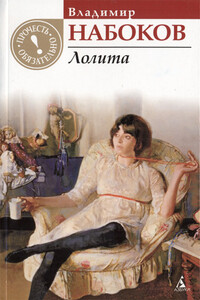
В 1955 году увидела свет «Лолита» — третий американский роман Владимира Набокова, создателя «Защиты ужина», «Отчаяния», «Приглашения на казнь» и «Дара». Вызвав скандал по обе стороны океана, эта книга вознесла автора на вершину литературного Олимпа и стала одним из самых известных и, без сомнения, самых великих произведений XX века. Сегодня, когда полемические страсти вокруг «Лолиты» уже давно улеглись, южно уверенно сказать, что это — книга о великой любви, преодолевшей болезнь, смерть и время, любви, разомкнутой в бесконечность, «любви с первого взгляда, с последнего взгляда, с извечного взгляда».В настоящем издании восстановлен фрагмент дневника Гумберта из третьей главы второй части романа, отсутствовавший во всех предыдущих русскоязычных изданиях «Лолиты».«Лолита» — моя особая любимица.
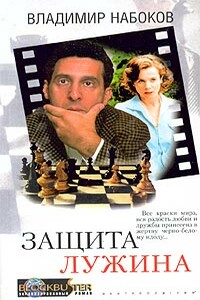
Гениальный шахматист Лужин живет в чудесном мире древней божественной игры, ее гармония и строгая логика пленили его. Жизнь удивительным образом останавливается на незаконченной партии, и Лужин предпочитает выпасть из игры в вечность…

В книге рассказывается история главного героя, который сталкивается с различными проблемами и препятствиями на протяжении всего своего путешествия. По пути он встречает множество второстепенных персонажей, которые играют важные роли в истории. Благодаря опыту главного героя книга исследует такие темы, как любовь, потеря, надежда и стойкость. По мере того, как главный герой преодолевает свои трудности, он усваивает ценные уроки жизни и растет как личность.
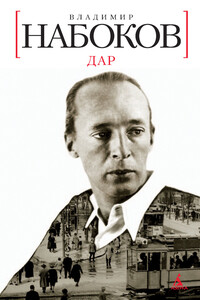
«Дар» (1938) – последний русский роман Владимира Набокова, который может быть по праву назван вершиной русскоязычного периода его творчества и одним из шедевров русской литературы ХХ века. Повествуя о творческом становлении молодого писателя-эмигранта Федора Годунова-Чердынцева, эта глубоко автобиографичная книга касается важнейших набоковских тем: судеб русской словесности, загадки истинного дара, идеи личного бессмертия, достижимого посредством воспоминаний, любви и искусства. В настоящем издании текст романа публикуется вместе с авторским предисловием к его позднейшему английскому переводу.
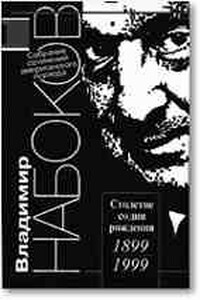
Роман, задуманный Набоковым еще до переезда в США (отрывки «Ultima Thule» и «Solus Rex» были написаны на русском языке в 1939 г.), строится как 999-строчная поэма с изобилующим литературными аллюзиями комментарием. Данная структура была подсказана Набокову работой над четырехтомным комментарием к переводу «Евгения Онегина» (возможный прототип — «Дунсиада» Александра Поупа).Согласно книге, комментрируемая поэма принадлежит известному американскому поэту, а комментарий самовольно добавлен его коллегой по университету.
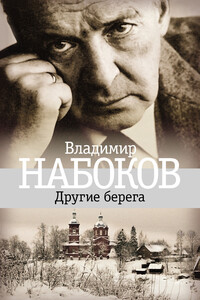
Свою жизнь Владимир Набоков расскажет трижды: по-английски, по-русски и снова по-английски.Впервые англоязычные набоковские воспоминания «Conclusive Evidence» («Убедительное доказательство») вышли в 1951 г. в США. Через три года появился вольный авторский перевод на русский – «Другие берега». Непростой роман, охвативший период длиной в 40 лет, с самого начала XX века, мемуары и при этом мифологизация биографии… С появлением «Других берегов» Набоков решил переработать и первоначальный, английский, вариант.
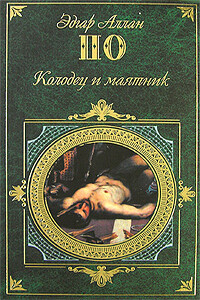
Семеро друзей веселились, безумствовали и пили вино, рядом лежал восьмой. Он не пил и не веселился, его — одного из многих, одного из многих их друзей — забрала чума.А потом пришла Тень...
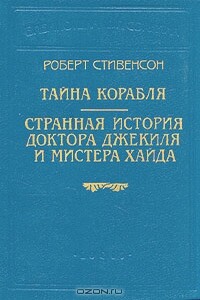
В романе «Тайна корабля» описывается полная приключений жизнь Додда Лоудона, которого судьба привела на борт потерпевшего крушение брига «Летучее облако», якобы нагруженного контрабандным опиумом. Лоудон не находит на судне ни опиума, ни сокровищ, но зато раскрывает жуткую тайну гибели корабля и его экипажа.В повести «Странная история доктора Джекиля и мистера Хайда» рассказывается об удивительном открытии доктора Джекиля, которое позволяет герою вести двойную жизнь: преступника и негодяя в обличье Эдуарда Хайда и высоконравственного ученого-в собственном обличье.

В книге рассказывается история главного героя, который сталкивается с различными проблемами и препятствиями на протяжении всего своего путешествия. По пути он встречает множество второстепенных персонажей, которые играют важные роли в истории. Благодаря опыту главного героя книга исследует такие темы, как любовь, потеря, надежда и стойкость. По мере того, как главный герой преодолевает свои трудности, он усваивает ценные уроки жизни и растет как личность.
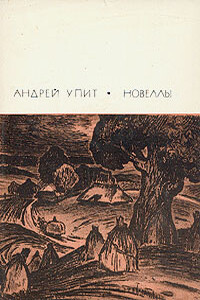
В книге рассказывается история главного героя, который сталкивается с различными проблемами и препятствиями на протяжении всего своего путешествия. По пути он встречает множество второстепенных персонажей, которые играют важные роли в истории. Благодаря опыту главного героя книга исследует такие темы, как любовь, потеря, надежда и стойкость. По мере того, как главный герой преодолевает свои трудности, он усваивает ценные уроки жизни и растет как личность.
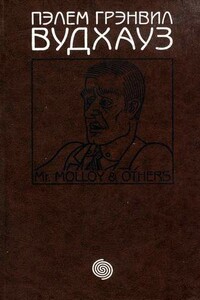
В этой книге — три новые идиллии П.Г. Вудхауза, а следовательно — новые персонажи, которые не оставят вас равнодушными.
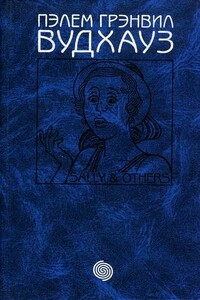
В этой книге мы вновь встречаемся с героями П.Г. Вудхауза в романах, ранее не публиковавшихся, и с уже известными по прежним публикациям персонажами.